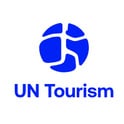World Forum on Gastronomy Tourism Heads to Bahrain to Focus on Economic Diversification and Inclusion
The 9th UN Tourism World Forum on Gastronomy Tourism will take place in Manama, Bahrain, on 18-19 November, with the theme “Gastronomy Tourism: A Driver of Economic Diversification and Inclusion.”
This marks the first time the Forum will be held in the Middle East. Bringing together global leaders, policymakers, industry experts, and renowned chefs, the event will emphasize the transformative power of gastronomy tourism in advancing economic resilience, inclusivity, sustainability, and building a strong image for destinations.
Top chefs join sector leaders
Co-organized with the Basque Culinary Center (BCC) and hosted by the Kingdom of Bahrain, discussions will feature Ministers of Tourism from around the world and from the Middle East. Joining them will be award-winning chefs, such as Chef Alejandra Espinoza of Somos Restaurant (Ecuador), and Chef Rudolf Stefan of Konoba Pelegrini (Croatia). Key participation will include Tim Brooke-Webb, Managing Director of 50 Best, empowering chefs worldwide, and fostering a global dialogue that elevates gastronomy as a fundamental cultural, economic, and creative force.
The forum will highlight key initiatives that emphasize product quality and origins, such as Jordan's "From Farm to Fork" initiative, an example of sustainable culinary tourism, and the Collège Culinaire de France, recognized for promoting quality dining and supporting artisans committed to preserving traditional savoir-faire. The event will also showcase Grupo Sagardi from Spain, a leading hospitality group that builds on gastronomic roots to offer authentic, high-quality culinary experiences.
In line with discussions on leveraging intangible cultural heritage, the forum will explore key themes such as the use of intellectual property and branding to enhance destination branding, the preservation of culinary heritage and biodiversity, and the promotion of authentic, immersive cultural experiences that engage the entire gastronomy tourism value chain. Experts from the World Intellectual Property Organization (WIPO), the global Slow Food movement, and the Creative Tourism Network will address these topics.
Food Waste and innovation keys for sustainability
Sustainability will remain a core focus, with discussions on reducing food waste, integrating circular economy principles, and promoting local sourcing. A masterclass by LightBlue Consulting (Thailand) will delve into circular solutions for food waste reduction, followed by a session featuring contributions from renowned chef and UNEP food waste advocate for Recipe of Change, Leyla Fathallah (UAE), the One Planet Sustainable Tourism Programme coordinator (UNEP), and Ehfaaz (UAE), a circular economy start-up specializing in closed-loop recycling.
Innovation will also be a key pillar of the event, with Meta leading a masterclass on the impact of social media and technology in reshaping gastronomy tourism. A panel discussion will further explore how to build a destination's image through gastronomy. In addition, the Forum will host the final of the 4th UN Tourism Global Gastronomy Tourism Startup Competition, where startups from around the world will present innovative solutions aimed at addressing challenges within the gastronomy tourism sector.
Live cooking demonstrations by Bahraini chefs will offer participants an immersive experience of Bahrain's unique culinary traditions, while side activities will allow participants to explore the country's rich cultural and historical heritage.
Registrations are open until 31 October 2024.
Related links:
About UN Tourism
The World Tourism Organization (UN Tourism) is the United Nations agency responsible for the promotion of responsible, sustainable and universally accessible tourism.
As the leading international organization in the field of tourism, UN Tourism promotes tourism as a driver of economic growth, inclusive development and environmental sustainability and offers leadership and support to the sector in advancing knowledge and tourism policies worldwide.
Our Priorities
Mainstreaming tourism in the global agenda: Advocating the value of tourism as a driver of socio-economic growth and development, its inclusion as a priority in national and international policies and the need to create a level playing field for the sector to develop and prosper.
Promoting sustainable tourism development: Supporting sustainable tourism policies and practices: policies which make optimal use of environmental resources, respect the socio-cultural authenticity of host communities and provide socio-economic benefits for all.
Fostering knowledge, education and capacity building: Supporting countries to assess and address their needs in education and training, as well as providing networks for knowledge creation and exchange.
Improving tourism competitiveness: Improving UN Tourism Members' competitiveness through knowledge creation and exchange, human resources development and the promotion of excellence in areas such as policy planning, statistics and market trends, sustainable tourism development, marketing and promotion, product development and risk and crisis management.
Advancing tourism's contribution to poverty reduction and development: Maximizing the contribution of tourism to poverty reduction and achieving the SDGs by making tourism work as a tool for development and promoting the inclusion of tourism in the development agenda.
Building partnerships: Engaging with the private sector, regional and local tourism organizations, academia and research institutions, civil society and the UN system to build a more sustainable, responsible and competitive tourism sector.
Our Structure
Members: An intergovernmental organization, UN Tourism has 160 Member States, 6 Associate Members, 2 Observers and over 500 Affiliate Members.
Organs: The General Assembly is the supreme organ of the Organization. The Executive Council take all measures, in consultation with the Secretary-General, for the implementation of the decisions and recommendations of the General Assembly and reports to the Assembly.
Secretariat: UN Tourism headquarters are based in Madrid, Spain. The Secretariat is led by the Secretary-General and organized into departments covering issues such as sustainability, education, tourism trends and marketing, sustainable development, statistics and the Tourism Satellite Account (TSA), destination management, ethics and risk and crisis management. The Technical Cooperation and Silk Road Department carries out development projects in over 100 countries worldwide, while the Regional Departments for Africa, the Americas, Asia and the Pacific, Europe and the Middle East serve as the link between UN Tourism and its 160 Member States. The Affiliate Members Department represents UN Tourism's 500 plus Affiliate members.
UN Tourism Communications Department
+34 91 567 8100
UN Tourism
